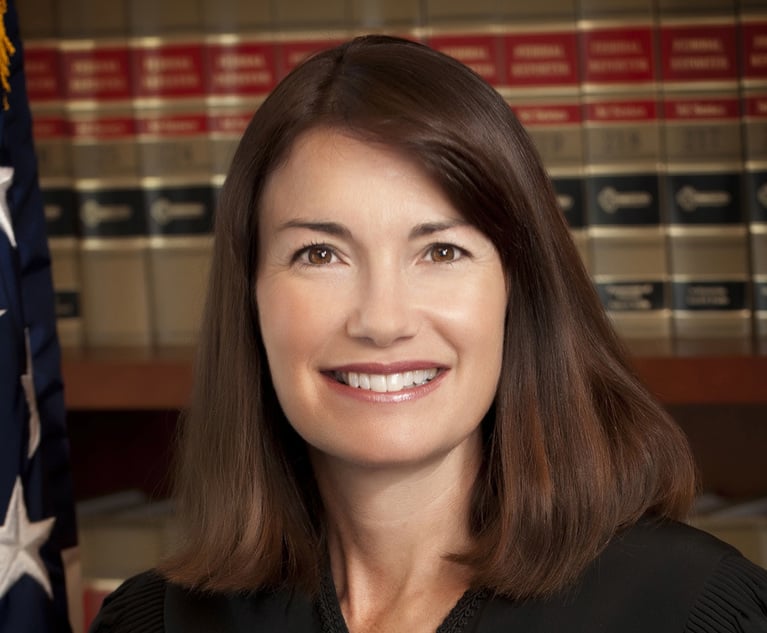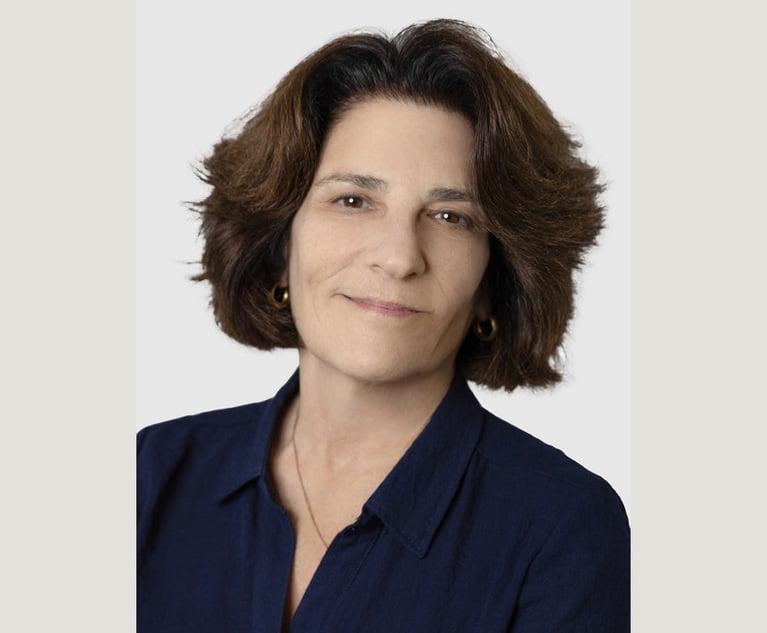 Pro se defendant Michael Avenatti walks into the federal courthouse in Orange County, California, on Wednesday, July 21, with his standby counsel, H. Dean Steward (right) and Courtney Cummings Cefali (left). Photo: Meghann M. Cuniff/ALM
Pro se defendant Michael Avenatti walks into the federal courthouse in Orange County, California, on Wednesday, July 21, with his standby counsel, H. Dean Steward (right) and Courtney Cummings Cefali (left). Photo: Meghann M. Cuniff/ALM 'Close Is Not Good Enough': Michael Avenatti, Defending Himself, Says Client Theft Case Is 'About Math'
"This case is about how you calculate what a client is due after their settlement is received," Avenatti told Central District of California jurors.
July 22, 2021 at 12:00 AM
5 minute read
Michael Avenatti launched a courtroom defense that attempts to cast his activities with client settlement money as routine and common, describing the case against him as being "about math."
"This case is about how you calculate what a client is due after their settlement is received," Avenatti told Central District of California jurors in a 30-minute opening statement that focused on the civil litigation tactics of his now-bankrupt law firm, Eagan Avenatti. His basic defense is that he spent huge amounts of money helping his clients before he secured their settlements, and the money he kept was to cover those expenses.
"We represented the Davids v. the Goliaths. We did it across the country, and the evidence will show we were blessed to do it very well," said Avenatti, who took over his defense Tuesday in a surprise move. "We gave people who had no chance a fighting chance. We did it by doing exactly what I'm doing right now, but in a civil context. In civil cases."
"We took money out of our own pocket to assist them with their lives and with their cases," Avenatti said of his clients. "The evidence will show that the government does not want to focus on any of those points."
Expected to last at least three weeks, the trial is the second in 18 months for Avenatti, who was sentenced in New York to 30 months in prison for felony convictions related to an extortion plot against Nike. The case being tried now before U.S. District Judge James V. Selna of the Central District of California in Santa Ana carries much more time in prison, and involves 10 wire fraud counts related to alleged stolen client settlements.
Before Avenatti addressed the jury Wednesday, Assistant U.S. Attorney Brett Sagel used his 35-minute opening to describe to the jury how Avenatti allegedly lied and stole from four clients, beginning with Geoff Johnson, a man who wanted to buy a handicap-accessible home with a $4 million settlement from Los Angeles County that Avenatti allegedly stole instead.
Sagel alleged Avenatti spent all the settlement money, then used other funds to give Johnson small payments, while lying about the status of the settlement and forging his signature. Another of the ex-clients is well-known YouTube makeup artist Michelle Phan. Avenatti allegedly spent their money on personal expenses, including a Honda jet, Sagel told jurors.
"Each of their cases were different, but all of them trusted Michael Avenatti," Sagel claimed.
|Lawyers on the Stand
Sagel's co-counsel Alexander Wyman questioned the first witness, Patrick McNicholas, a plaintiffs lawyer with McNicholas & McNicholas in Los Angeles, about his work with Avenatti on Johnson's case, before Avenatti launched into a cross examination that tried to align McNicholas' activities with his own.
Avenatti's questions were rooted in what he told jurors in his opening: His firm bore huge risks by taking cases on contingency, and it spent huge sums of money on clients, including Johnson, that he as an attorney had every right to recoup once cash arrived. He also touched on a strict standard by which he told the jury they must abide: Prosecutors must prove every amount in each of the 10 wire fraud counts "to the dollar."
"Close is not good enough. To the dollar, ladies and gentlemen," Avenatti said.
With that in mind, Avenatti questioned McNicholas about $350,000 McNicholas received in attorney fees, and money he recovered for costs associated with his work on the case.
Given the fact that McNicholas received that money, "Isn't it true that Michael Avenatti did not steal the entire $4 million Johnson settlement check?" Avenatti asked.
"As defined, I would agree with that," McNicholas answered.
On re-direct, Assistant U.S. Attorney Alexander Wyman established that McNicholas doesn't actually know the true source of the money he received. Wyman also addressed Avenatti's inference in his cross that Johnson's settlement was a matter of public record, and thus not concealed from him.
"Do you typically have your clients learn about their settlements through public filings?" Wyman asked.
Avenatti objected as argumentative, but Selna overruled.
"No," McNicholas answered.
Wyman also asked McNicholas if he expected Johnson to receive "zero dollars" after all attorney fees and costs were paid.
"Your expectation was that Mr. Johnson would get something from the settlement, correct?" Wyman asked.
"Absolutely, yes," McNicholas answered.
The second witness was Thomas Hurrell, a civil defense lawyer at Hurrell Cantrall in Los Angeles, who represented Los Angeles County in Johnson's lawsuit.
Prosecutors say Avenatti never told Johnson about the settlement, and instead forged his signature on a document he gave to Hurrell. But Hurrell told jurors he didn't know whether the signature on the document was truly Johnson's.
In cross examination, Avenatti asked if Hurrell knows how much money Johnson was owed, and Hurrell said that he didn't.
"Sir, as you sit there today, do you have any idea one way or the other whether I did anything unethical or illegal in connection with Mr. Johnson's settlement?" Avenatti asked.
"I don't have any knowledge of that," Hurrell answered.
Testimony continues Thursday.
This content has been archived. It is available through our partners, LexisNexis® and Bloomberg Law.
To view this content, please continue to their sites.
Not a Lexis Subscriber?
Subscribe Now
Not a Bloomberg Law Subscriber?
Subscribe Now
NOT FOR REPRINT
© 2025 ALM Global, LLC, All Rights Reserved. Request academic re-use from www.copyright.com. All other uses, submit a request to [email protected]. For more information visit Asset & Logo Licensing.
You Might Like
View All
Biden commutes sentences for 37 of 40 federal death row inmates, including two convicted of California murders
6 minute read

Judge Asks: Should Tom Girardi Serve Sentence in a Medical Facility or Behind Bars?
4 minute readLaw Firms Mentioned
Trending Stories
- 1The Quiet Revolution: Private Equity’s Push Into Law Firms
- 2Restoring Trust in the Courts Starts in New York
- 3'Pull Back the Curtain': Ex-NFL Players Seek Discovery in Lawsuit Over League's Disability Plan
- 4Tensions Run High at Final Hearing Before Manhattan Congestion Pricing Takes Effect
- 5Improper Removal to Fed. Court Leads to $100K Bill for Blue Cross Blue Shield
Who Got The Work
Michael G. Bongiorno, Andrew Scott Dulberg and Elizabeth E. Driscoll from Wilmer Cutler Pickering Hale and Dorr have stepped in to represent Symbotic Inc., an A.I.-enabled technology platform that focuses on increasing supply chain efficiency, and other defendants in a pending shareholder derivative lawsuit. The case, filed Oct. 2 in Massachusetts District Court by the Brown Law Firm on behalf of Stephen Austen, accuses certain officers and directors of misleading investors in regard to Symbotic's potential for margin growth by failing to disclose that the company was not equipped to timely deploy its systems or manage expenses through project delays. The case, assigned to U.S. District Judge Nathaniel M. Gorton, is 1:24-cv-12522, Austen v. Cohen et al.
Who Got The Work
Edmund Polubinski and Marie Killmond of Davis Polk & Wardwell have entered appearances for data platform software development company MongoDB and other defendants in a pending shareholder derivative lawsuit. The action, filed Oct. 7 in New York Southern District Court by the Brown Law Firm, accuses the company's directors and/or officers of falsely expressing confidence in the company’s restructuring of its sales incentive plan and downplaying the severity of decreases in its upfront commitments. The case is 1:24-cv-07594, Roy v. Ittycheria et al.
Who Got The Work
Amy O. Bruchs and Kurt F. Ellison of Michael Best & Friedrich have entered appearances for Epic Systems Corp. in a pending employment discrimination lawsuit. The suit was filed Sept. 7 in Wisconsin Western District Court by Levine Eisberner LLC and Siri & Glimstad on behalf of a project manager who claims that he was wrongfully terminated after applying for a religious exemption to the defendant's COVID-19 vaccine mandate. The case, assigned to U.S. Magistrate Judge Anita Marie Boor, is 3:24-cv-00630, Secker, Nathan v. Epic Systems Corporation.
Who Got The Work
David X. Sullivan, Thomas J. Finn and Gregory A. Hall from McCarter & English have entered appearances for Sunrun Installation Services in a pending civil rights lawsuit. The complaint was filed Sept. 4 in Connecticut District Court by attorney Robert M. Berke on behalf of former employee George Edward Steins, who was arrested and charged with employing an unregistered home improvement salesperson. The complaint alleges that had Sunrun informed the Connecticut Department of Consumer Protection that the plaintiff's employment had ended in 2017 and that he no longer held Sunrun's home improvement contractor license, he would not have been hit with charges, which were dismissed in May 2024. The case, assigned to U.S. District Judge Jeffrey A. Meyer, is 3:24-cv-01423, Steins v. Sunrun, Inc. et al.
Who Got The Work
Greenberg Traurig shareholder Joshua L. Raskin has entered an appearance for boohoo.com UK Ltd. in a pending patent infringement lawsuit. The suit, filed Sept. 3 in Texas Eastern District Court by Rozier Hardt McDonough on behalf of Alto Dynamics, asserts five patents related to an online shopping platform. The case, assigned to U.S. District Judge Rodney Gilstrap, is 2:24-cv-00719, Alto Dynamics, LLC v. boohoo.com UK Limited.
Featured Firms
Law Offices of Gary Martin Hays & Associates, P.C.
(470) 294-1674
Law Offices of Mark E. Salomone
(857) 444-6468
Smith & Hassler
(713) 739-1250







